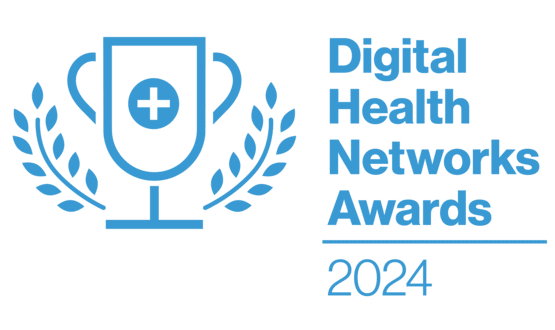Enter the CCG: says thanks
- 15 September 2015

I just had an epiphany. (Yes, another one.) To begin at the beginning… I wear a number of hats, one of which is chairing a national medical IT user group.
Like all user groups, we run conferences and meetings, represent our members’ interests on national committees, assist with queries, and act as a conduit between the company and our members in relation to software problems and requests for developments in functionality.
Quite naturally, the time we spend on all this is devoted, almost exclusively, to areas of current concern.
A few weeks ago, one of my colleagues observed that this concentration on ‘things that need fixing’ means we tend to be focussed on perceived problems and deficiencies.
That, in turn, means we don’t always remember to praise the software company for the many good things it has done — such as the overwhelming proportion of their software that works impeccably.
I can’t begin to tell you what an impression this comment made on me — particularly because, in the wider world, I’ve always made a point of trying to give a truly balanced assessment of everybody’s work and worth, both positive and negative.
I’ve long been of the opinion that we don’t praise people enough for the good things that they do. Indeed, it is generally much easier for people to deal with moments of criticism if this is against a background of routine commendation over the things they do well.
From a medical point of view, continuing negative comments can exert a hugely enervating effect on individuals, leading to a loss of self-confidence and — in the worst cases — defeatism, cynicism, depression and even suicide.
After all, why bother doing anything, if you know that in the end you’ll only be criticised? GPs like me see any number of patients each year whose self-confidence and joie de vivre has been hopelessly (and sometimes permanently) curtailed by over-critical parents, teachers, managers or colleagues.
That’s why I make a point of praising individuals as well as criticising them. And that’s why it’s been such an epiphany to discover that I’ve failed in this area over the software house.
Oops.
Actually, it’s a lot more than just ‘Oops’. It’s a devastating mistake — but in my defence, I’m certainly not alone.
This ‘failure to remember to praise’ – and the consequent apparent lack of balance it engenders – has probably affected every user group I’ve ever been involved with.
The need to rebalance
Fortunately, I don’t think that any of the public or private statements I have made on behalf of the user group have in themselves displayed a lack of balance.
My annoyance is with myself — I hadn’t consciously acknowledged the need overtly to praise the software house. So I’ve now adjusted my thinking and will make sure that I remember to give them a more appropriate level of acclaim in the future.
But it doesn’t stop there. A personal change of attitude isn’t enough: it is essential that the user group as a whole takes the same line; indeed, in fairness all user groups everywhere need to take this principle on board.
So what did our user group do? We agreed that I should call the company’s medical director onto the stage during a plenary session of our annual conference.
I then invited the entire auditorium to applaud the software house for the excellent work they’ve done, both as a company and as individuals.
Rather gratifyingly, that’s exactly what the delegates chose to do. The company representatives (who had absolutely no idea what was coming) were both delighted and appreciative.
The wider need
Now, we are only one user group among many hundreds in the NHS. There are primary care applications, third-party applications, community software and secondary care software providers, to say nothing of non-medical, managerial and office applications.
Everyone in medicine routinely interacts with far more software providers than they might at first imagine.
So let me ask you a personal question – how many of your software providers have you inadvertently taken for granted?
How many times have you complained about bugs, missing functionality, delayed upgrades or helpdesk problems without acknowledging how well the rest of their organisation and their software works?
If this is the case, maybe you too need to think about balancing up your criticism with a little more acclamation? Make your software suppliers and their staff feel that they are appreciated – it will help them greatly!

 |
Dr John LockleyDr John Lockley is clinical lead for informatics at Bedfordshire Clinical Commissioning Group and a part-time GP. |
 |




